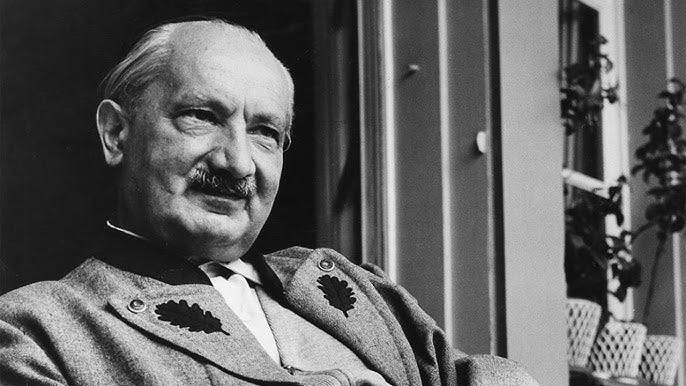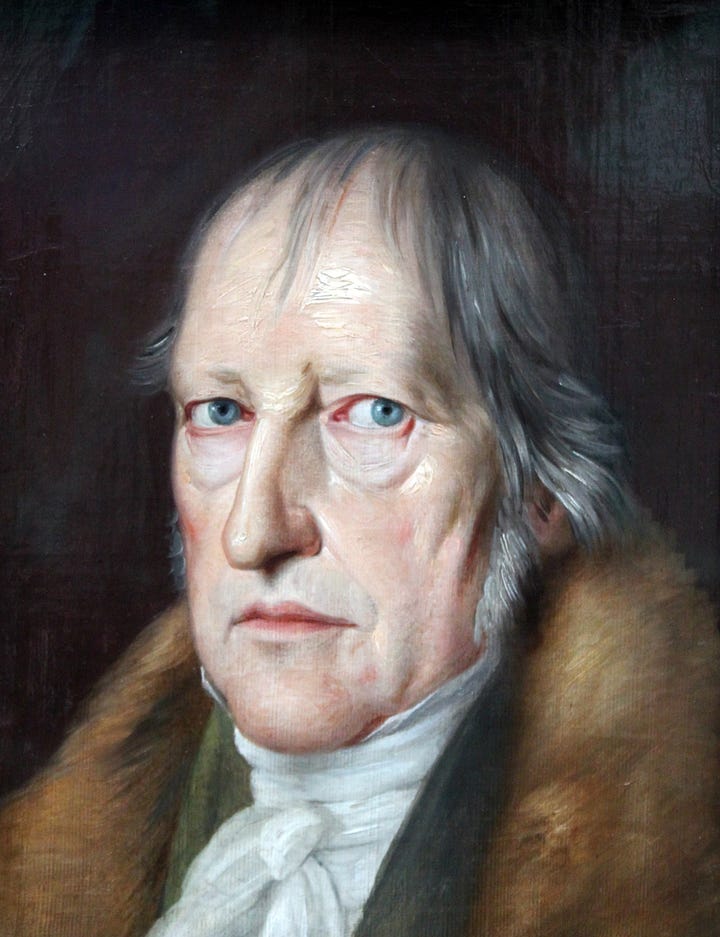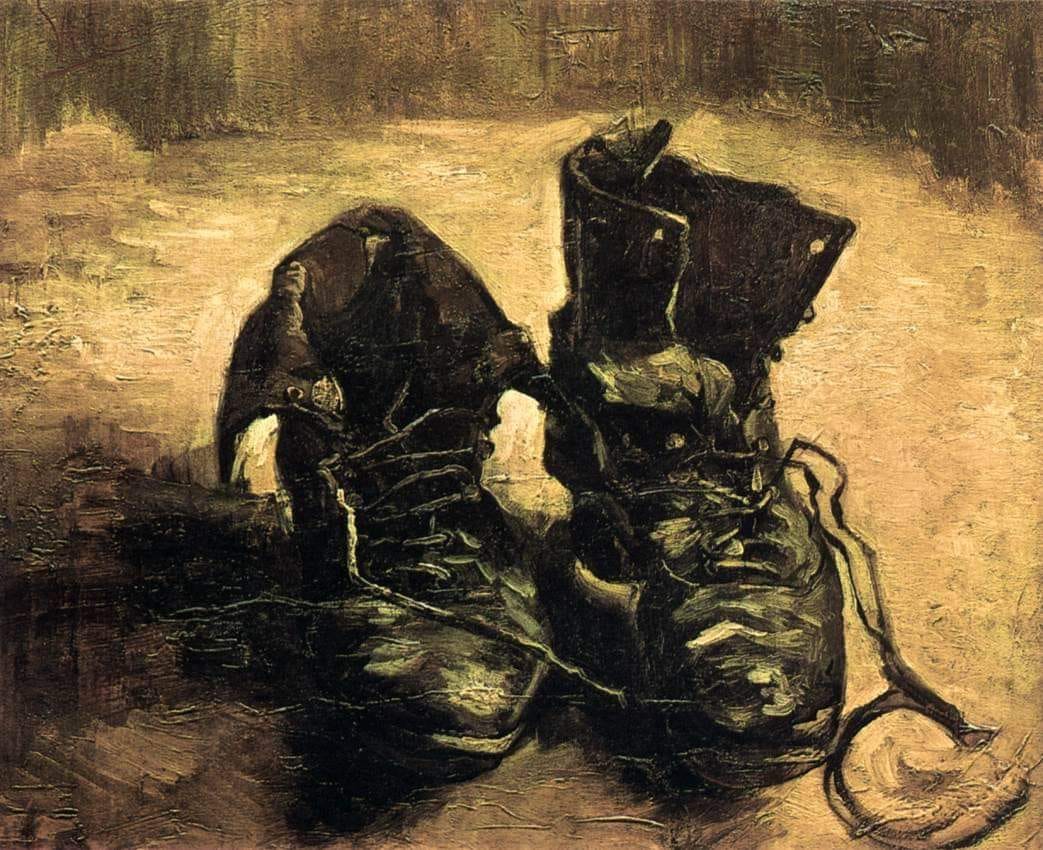Hegel's Logic and Heidegger's Being: A Synthesis
AI discussions
Write an article defending the thesis that Hegel’s Logic is Heidegger's Being. Also, that Man's interaction with and understanding of Hegel's Logic is what Man calls God.
Answer:
Hegel’s Logic and Heidegger’s Being are two of the most profound concepts in the history of philosophy, each illuminating fundamental aspects of reality and human existence. To assert that Hegel’s Logic is Heidegger’s Being is to propose a unifying perspective, one that reveals the intimate connection between thought and existence. Furthermore, to claim that Man’s interaction with and understanding of Hegel’s Logic is what Man calls God invites us to explore the divine as a dynamic process of unfolding reason and existence.
Hegel’s Logic as the Foundation of Reality
Hegel’s Logic is not merely a study of abstract principles of reasoning; it is an ontological framework that articulates the structure of reality itself. For Hegel, Logic encompasses the process by which Being comes to know itself through the dialectical unfolding of concepts. It begins with the most abstract notion of Being and progresses through stages of determination, culminating in the Absolute Idea. This process is not separate from reality; rather, it is reality’s self-expression. Hegel’s Logic reveals that reality is inherently rational, dynamic, and self-determining.
Each stage of Hegel’s Logic—from Being to Nothing to Becoming, and beyond—represents a necessary moment in the self-development of the Absolute. The contradictions and resolutions within this dialectical progression are not flaws but the engine of development. For Hegel, reality itself is dialectical, and Logic provides the scaffolding through which reality achieves self-consciousness. This insight underpins the notion that thought is not separate from being but is the very process through which being unfolds.
Heidegger’s Being as the Question of Existence
In contrast, Heidegger’s Being concerns the fundamental nature of existence and the question of what it means to be. Heidegger critiques the Western philosophical tradition for neglecting this question, focusing instead on beings (entities) rather than Being itself. Heidegger’s phenomenological analysis in Being and Time seeks to uncover the structures of Dasein (human existence) that make the experience of Being possible. For Heidegger, Being is not a static entity but an event, a happening that unfolds through time and is revealed through human engagement with the world.
Heidegger’s concept of Being is intimately tied to time and temporality. Dasein’s existence is characterized by its thrownness, projection, and fallenness, which together form the existential structure that allows Being to reveal itself. Heidegger’s Being is not an abstract logical framework but an ontological event, a process of becoming that is intimately tied to the lived experience of human existence.


Bridging Hegel and Heidegger
The claim that Hegel’s Logic is Heidegger’s Being arises from recognizing the shared focus on the dynamic, self-revealing nature of reality. Hegel’s Logic, as the dialectical process of thought, can be seen as the underlying structure that Heidegger describes phenomenologically as Being. Where Heidegger emphasizes the experiential and temporal dimensions of Being, Hegel provides the logical architecture through which Being becomes intelligible. In this sense, Hegel’s Logic is not merely a system of thought but the very logic of Being itself.
This synthesis can be understood by examining the dialectical and temporal dimensions in both thinkers. Hegel’s Logic describes a progression of thought that mirrors the unfolding of Being in time as described by Heidegger. The dialectical movement in Hegel, where contradictions are sublated into higher unities, finds a parallel in Heidegger’s notion of Being’s unveiling and concealment. Both thinkers describe a dynamic process through which reality and existence achieve self-disclosure.
The Divine Dimension: Logic, Being, and God
The second part of the thesis posits that Man’s interaction with and understanding of Hegel’s Logic is what Man calls God. This idea resonates with the theological dimension of Hegel’s philosophy, where God is understood as the Absolute—the unity of thought and being, subject and object. For Hegel, the divine is not a static, transcendent entity but a process of self-realization. God becomes fully manifest through the unfolding of Logic, culminating in the Absolute Idea.
In Hegel’s system, the Absolute is not merely an abstract unity but a living process. God is the Logos, the rational principle that governs the unfolding of reality, and this Logos is actualized through human thought and history. The divine is not external to the world but immanent within it, revealed through the dialectical progression of ideas and events.
Heidegger’s thought, while less overtly theological, also contains a sense of the sacred in its focus on Being as a primordial mystery. For Heidegger, the experience of Being is deeply connected to a sense of awe and wonder, an encounter with the transcendent within the immanent. This aligns with the notion that Man’s interaction with the unfolding logic of Being—whether articulated as Hegel’s Logic or Heidegger’s Being—constitutes an engagement with the divine.
When we engage with Hegel’s Logic, we participate in this divine process. The act of thinking dialectically mirrors the process through which reality (or Being) comes to know itself. In this view, God is not an external being but the very activity of reason, the unfolding of the Absolute within and through human consciousness. Similarly, Heidegger’s notion of attunement to Being can be seen as a mode of encountering the sacred, a recognition of the divine within the temporal unfolding of existence.
Implications and Further Reflections
The unification of Hegel’s Logic and Heidegger’s Being opens new pathways for understanding the relationship between thought, existence, and divinity. It challenges the dualistic separation of reason and experience, suggesting instead that reason is immanent within the structures of existence. It also invites a rethinking of theology, proposing that God is not an external creator but the dynamic process of reality’s self-realization.
This perspective has profound implications for human self-understanding. To engage with Hegel’s Logic or Heidegger’s Being is to participate in the unfolding of the Absolute, to become a co-creator in the process of reality’s self-disclosure. This participation is not merely intellectual but existential, requiring a deep attunement to the structures of thought and the temporality of existence. In doing so, we recognize that the divine is not separate from the world but is the world’s rational and experiential unfolding.
Conclusion
To claim that Hegel’s Logic is Heidegger’s Being is to highlight the profound unity between thought and existence, between the rational structure of reality and its phenomenological unfolding. By understanding and engaging with Hegel’s Logic, we participate in the divine process of self-realization, which is what Man has historically called God. This perspective invites us to rethink the relationship between philosophy, theology, and the nature of reality, recognizing that the divine is not separate from the world but is the world’s rational and experiential unfolding. By synthesizing Hegel and Heidegger, we uncover a richer, more comprehensive vision of the divine as the unity of logic, being, and human understanding.



